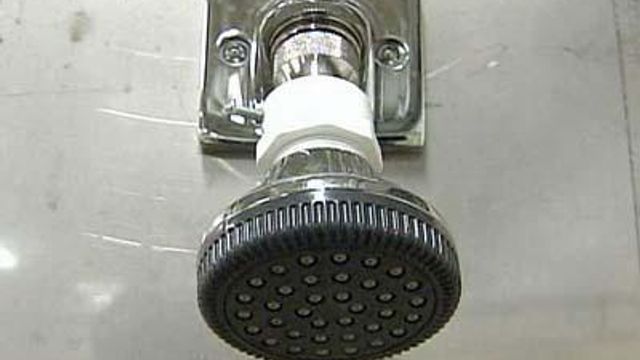N.C. State Cuts Back Water Use
Amid a crippling drought, Triangle companies use millions of gallons a day. But at least one of the Triangle's biggest users – North Carolina State University – is trying to cut back.
Posted — UpdatedRaleigh Public Utilities says NCSU is among the city's top five users of water, which flows at an estimated rate of 3.7 million gallons a day from Falls Lake, the city's main supply. Lake levels were down 7 feet, leaving about a 110-day supply on Thursday.
Commercial customers "use the water for a lot of the same things our residential customers do as well," Dale Crisp, Raleigh's public utilities director, said.
The university accommodates more than 30,000 students, faculty members and staff in buildings that cover approximately 12 million square feet.
"We're a city within a city," NCSU conservation coordinator Wake Fulghum said.
NCSU has stepped up its water-conservation efforts, which were originally implemented during the drought of 2002, Fulghum said. At Carmichael Gym, NCSU placed aerators on faucets and installed low-flow equipment on shower heads and other bathroom equipment.
"For every square foot of campus, we're using two-thirds of the water," Fulghum said. "That equates to 262 million gallons of water saved in the last six years."
Crisp applauded NCSU's water-saving efforts while the city is under Stage 1 water restrictions, which limit lawn watering, among other activities. Since restrictions went into effect Aug. 28, consumption has dropped 18 percent. If that decline continues and the area receives enough rain, Raleigh will not need to impose stricter Stage 2 restrictions, Crisp said.
Code enforcers have not had to issue many citations against commercial customers. But officials are still pushing businesses to take conservations steps such as NCSU has done.
"Whether you're a commercial, institutional or residential customer, any water usage that you can reduce voluntarily at this point, we need our customers to do," Crisp said.
• Credits
Copyright 2024 by Capitol Broadcasting Company. All rights reserved. This material may not be published, broadcast, rewritten or redistributed.






